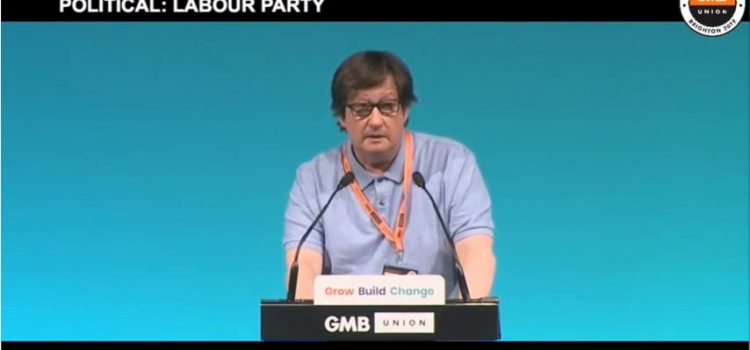I was tidying up my hard disk and came across the notes of a speech I gave GB 2019. I reported the speech on this blog but while many are saying that time moves on and things of changed, I feel the speech is prescient in its prediction of the failures of Brexit and the collective failure of much of the Trade Union movement to represent its membership. I wanted to say that the pusillanimous position of the CEC should be rejected as you can see in the speech. The 2019 European Parliament elections had just taken place showing the compromisers that the nation wasn’t willing to do that. It was make your mind up time. The Union leaderships allowed themselves to be captured by the Party. Anyway, this is what I planned to say, as they say on press releases, check on delivery.
President, Congress, Dave Levy, London Central General Branch, London Region, 1st time delegate, speaking in support of the CEC Special Report on Brexit
Brexit is poisoning politics and stopping us from addressing the issues that matter to people. It stops us talking about how a radical manifesto can heal the country from the ravages of both Thatcherite and 21st Century Tory austerity.
Not only do Labour’s promises of investment in infrastructure and education offer hope, the answer to low wages is labour marker reform, stronger minimum wage legislation, and to empower the Trade Unions and regulate management. It is not to blame migrants and to extend the hostile environment to another 3m citizens, our neighbours & fellow members and continue the Tory’s voter suppression, excluding them from votes to which they are entitled.
It has been clear since June 2016 and the failure of Leave.EU to articulate an exit model that there was always going to need to be a final say referendum. At the time, or shortly after I argued that the negotiations should be done by those that believe in it. That’s what happened but now we should be asked, all of us, those who voted leave, those who voted remain, those too young to vote last time, citizens abroad denied their vote and EU citizens resident in the UK, asked with humility if that is what is still wanted.
Constructive ambiguity is no longer an attractive position. It loses both remain and leave votes. This is proven to all except the most blinkered by last month’s EU Parliamentary results, the worrying subsequent polls and for those of us that have been out there, personal experience.
Labour lost nearly 60% of its vote, mainly to explicitly remain parties. In my home in Lewisham, despite the Council’s position of strongly supporting a 2nd referendum, the Mayor would be a LibDem. The inconvenient truth is that loosely aligned Remainers leant us their vote in 2017. We should also remember that most of labour’s members and presumably ours and voters want to remain.
While I can respect the voters who voted leave, the result is so criminally flawed that courts would have ordered a rerun if it had been deliberative. i.e. not consultative.
The CEC paper does not go far enough and while stating we oppose a no deal Brexit is welcome, that’s where we were in 2016 and yet we are now in an extension period and running out of time to get a satisfactory deal.
Imagine a worse case situation in the spring, a chaotic Brexit has led to queues on the M20, factory layoffs, food & medicine shortages and high inflation after a currency collapse. We will be telling people that all this is very terrible and should be fought, but, oops… if we actually facilitated Brexit, we won’t be heard. It won’t wash.
It maybe time to make up our mind if we want to alienate the majority or minority of our voters.
Labour’s Conference has been clear since 2016, on the basis of GMB motions that its position is to oppose leaving on inadequate Tory terms and now is the time to say that the Tory’s terms fail to meet our needs. Both May’s deal and No-Deal fails to meet Conference 16 policy; it fails to meet the six tests and fails to meet Conference 18’s thresholds. There’s no protection for jobs, employment rights, environmental protection or consumer rights. And no deal means the reimposition of a border in Ireland.
It’s time! We need a public vote and Labour should declare for Remain. There’s no other option on the table. I’d also urge delegates to look with favour on M xxx. . It’s not a London Region motion so we will listen to the debate before deciding which way to vote.
The picture is not of that speech, may equally not be the correct conference. …







